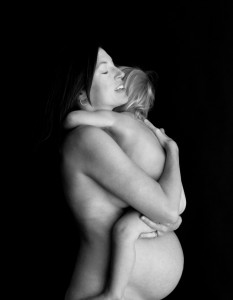Empathy as a mother is a crucial skill. Our children depend on our ability to sense and feel them deeply, and to use that information to keep creating balance, harmony, and well being in our fluctuating family systems.
Being empathic is an asset as a human being, psychologically and relationally. Empathy helps me do one of the things that is most important to me in my life: to love and serve others. I really value my ability to put myself in another’s experience and perspective. It helps me understand others, and respond to them in an attuned way.
It’s good to be empathic, right?
Well, this research affirms something I have known intuitively for a long time: being empathic is stressful. And probably, if you are empathic, you already know this.
This knowledge doesn’t make me want to give up my emphatic nature though, and I don’t even think that I could. Empathy serves me well in my relationships, work, marriage, and in raising my kids.
But it has a cost, at least as a parent, as this new research indicates. Empathic parents seem to experience more physiological stress (in the form of chronic and low-grade inflammation) than parents who are less empathic.
According to the article, empathy is stressful to the body because it involves putting my feelings and experience aside, suppressing them, while I prioritize yours. Empathy is a relational strength, and a liability in my own body.
This article points to the importance of those who empathize most with their children to be sure to engage in activities that support their own resilience. Apparently, empathic parents tend to forgo the things that could mitigate the stress of empathic parenting, like sleep and exercise.
I would add another layer: that empathic parents also need empathy from others, as this would alleviate some of their stress as well.
As a mother, I often seek empathy from other mothers. I trust other moms to understand the reality of the burdens and the blessings that mothering entails. Friends and community with overlapping values and the willingness to empathize are of tremendous importance to our well being.
Additionally, what I have gathered from my own life experience, and from working with couples and researching attachment and couple therapy, is that empathy is the most impactful when it comes from our primary relationships–our partners. (If you are a single mama, holding so much on your own, you are probably well aware of how supportive and relieving it would be to have an empathic partner).
I experience the most benefit when my husband empathizes with me. Sure, he may never know exactly what it is like to gestate and birth a human like my female friends. But when he imagines and extends himself to understand me, and uses all that he knows about me on so many other levels, too, I feel enormous relief. His understanding and care lessens the impact of stress on my body and my life.
I’m grateful he is willing and able to do that for me. (And if you are with someone who won’t or can’t empathize, then if for nothing else than the interest of your long term health, it is worth working on. That kind of connection is a deeply healing factor in managing life stress, as well as for having a fulfilling relationship).
Sometimes, those of us who are the most empathic are the ones who are the most unlikely to receive empathy from others. We actually do things and create patterns in our life that keep us from getting the one thing we value so much in giving to others.
So, if you are empathic, consider how much empathy you allow yourself to receive. Do you let the people closest to you support you? Do you allow yourself to express feelings, be vulnerable, and depend on the ones you trust? If not, or if you do very little, you may want to experiment with balancing that aspect of your life out a bit more. It could restore your ability to do the thing you love to do most: connect deeply with the ones you love.
I know that in many situations in life, less is more. And while the research could be interpreted as indicating that empathizing less would support parents’ physiological health, I just can’t get on board with that. The psychological and physiological benefits to our children who receive our empathy are well documented, and we don’t want to give those up.
Maybe in this case, the way I see it, the more empathy all around, the better.


